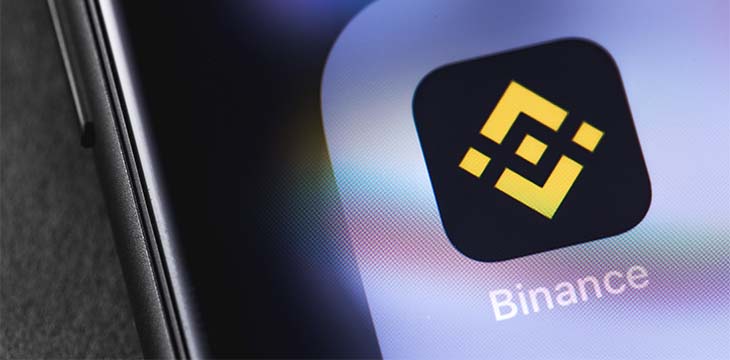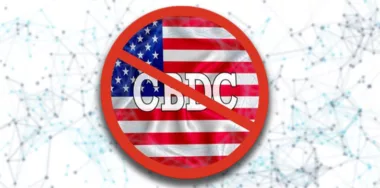| Getting your Trinity Audio player ready... |
Controversial digital currency exchange Binance has a lot of ‘splainin to do after it unveiled—and then quickly withdrew—a new swastika-themed emoji on Adolf Hitler’s birthday.
On Wednesday, cryptocurrency exchange proudly unveiled a new bespoke emoji that it clearly intended to accompany all future communications emanating from its official social media feeds, including the account of its outspoken CEO Changpeng ‘CZ’ Zhao.
But the emoji—an apparent attempt to combine the Binance logo, a computer chip’s circuit board and the swastika symbol of the Hindu religion—immediately drew condemnation (and some pointed jibes) from the Twitterati, who couldn’t believe that no one at Binance realized that associating their new digital identity with one of the most genocidal regimes in history was, er, not good. The fact that this emoji was publicly unveiled on April 20th—the 133rd anniversary of Hitler’s unfortunate birth—didn’t help Binance’s cause.
After several ‘crypto’ critics pointed out the problem, both Binance’s official Twitter feed and CZ’s account deleted the celebratory announcements. The Binance account then tweeted a mea culpa, acknowledging the “obviously really embarrassing” situation, and expressing confusion as to “how that emoji got through several layers of review without anyone noticing.”
While some Binance supporters tried to argue that the ‘flat’ depiction of the swastika-like symbol—more typical of the traditional Hindu usage as opposed to the rotated version favored by the Nazis—was evidence of Binance’s good (if inept) intentions, the Nazis did make frequent use of the ‘flat’ version (including the giant cement version that adorned the Nuremberg rally grounds until American soldiers blew it up in 1945).
Shockingly, this isn’t the first time that Binance has made some truly lamentable marketing choices that recalled Nazi horrors. In 2017, Binance tweeted a promotion that promised to distribute ‘$GAS’ to users of the NEO blockchain, but chose to depict the word ‘GAS’ in large type over a six-pointed star, universally recognized as the Jewish Star of David. Suffice it to say, the unfortunate decision to pair ‘gas’ with Jewish iconography necessitated another frantic scramble for the ‘delete’ button.
There’s a cliché in the sports world that comes up whenever a supposedly strong team loses a game they should have won: Once is a fluke, twice is a coincidence, three times is a trend. For the moment, Binance is getting a pass on its accidental Nazi affiliations. But one more instance of this kind and the führer—sorry, the furor—won’t be so easily dismissed.
You can’t fire me, I quit
Also making the news on Wednesday was the announcement that Binance’s U.S.-facing division Binance.US was withdrawing from the Washington, D.C.-based Blockchain Association lobbying group. There has so far been no indication that the move was sparked by Binance’s still-smoldering public relations flameout.
A Binance.US spokesperson told CoinDesk that the company pulled its ejector seat after determining that “our values, goals and standards were not fully aligned” with the Blockchain Association, which Binance joined less than two years ago. After failing to negotiate a greater role for itself within the Association, Binance.US reportedly decided to ‘reallocate’ its lobbying funds toward “efforts consistent with Binance.US’ policy agenda in Washington and state capitals across the country.”
Specifics on said agenda—including why Binance’s American goals apparently don’t match those of the other Association members—remain murky. In 2021, Binance.US made a big play of hiring former federal regulator Brian Brooks as its new CEO but Brooks walked out just months after joining the firm, citing “differences over strategic direction.” (Brooks’ predecessor has had even less to say publicly regarding her exit.)
Given Binance’s extensive history of ‘compliance theater,’ it’s entirely possible that the company was in fact asked to leave the Association once its members realized Binance.US had no real policy agenda beyond portraying itself as the fresh-faced, regulator-friendly offshoot of CZ’s rule-flaunting mothership.
Time and again, Binance has made high-profile announcements of its intentions to seek licensing in this or that jurisdiction but then failed to follow through. At other times, Binance has straight up lied to both regulators and customers regarding its compliance record. Meanwhile, Binance.US is reportedly the subject of an ongoing probe by the U.S. Securities and Exchange Commission (SEC) into undisclosed ties to two market-making firms controlled by Binance’s own CZ.
So, if we had to hazard a guess, we suspect Binance’s U.S. policy agenda amounts to some variation of ‘Badges? We don’t need no stinking badges!’, which may not have been the compliance message the other members of the Blockchain Association wished to convey. Either that, or maybe Binance just found the Association a little too crowded and felt it needed a little more lebensraum.
Follow CoinGeek’s Crypto Crime Cartel series, which delves into the stream of groups—a from BitMEX to Binance, Bitcoin.com, Blockstream, ShapeShift, Coinbase, Ripple,
Ethereum, FTX and Tether—who have co-opted the digital asset revolution and turned the industry into a minefield for naïve (and even experienced) players in the market.
New to blockchain? Check out CoinGeek’s Blockchain for Beginners section, the ultimate resource guide to learn more about blockchain technology.








